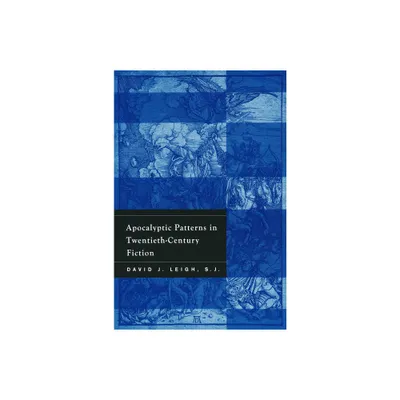Home
Dramatizing Time in Twentieth-Century Fiction / Edition 1
Loading Inventory...
Barnes and Noble
Dramatizing Time in Twentieth-Century Fiction / Edition 1
Current price: $190.00


Barnes and Noble
Dramatizing Time in Twentieth-Century Fiction / Edition 1
Current price: $190.00
Loading Inventory...
Size: OS
*Product Information may vary - to confirm product availability, pricing, and additional information please contact Barnes and Noble
How have twentieth-century writers used techniques in fiction to communicate the human experience of time?
Dramatizing Time in Twentieth-Century Fiction
explores this question by analyzing major narratives of the last century that demonstrate how time becomes variously manifested to reflect and illuminate its operation in our lives.
Offering close readings of both modernist and non-modernist writers such as Wodehouse, Stein, Lewis, Joyce, Hemingway, Faulkner, Borges, and Nabokov, the author shares and unifies the belief, as set forth by the distinguished philosopher Paul Ricoeur, that narratives rather than philosophy best help us understand time. They create and communicate its meanings through dramatizations in language and the reconfiguration of temporal experience. This book explores the various responses of artistic imaginations to the mysteries of time and the needs of temporal organization in modern fiction. It is therefore an important reference for anyone with an interest in twentieth-century literature and the philosophy of time.
Dramatizing Time in Twentieth-Century Fiction
explores this question by analyzing major narratives of the last century that demonstrate how time becomes variously manifested to reflect and illuminate its operation in our lives.
Offering close readings of both modernist and non-modernist writers such as Wodehouse, Stein, Lewis, Joyce, Hemingway, Faulkner, Borges, and Nabokov, the author shares and unifies the belief, as set forth by the distinguished philosopher Paul Ricoeur, that narratives rather than philosophy best help us understand time. They create and communicate its meanings through dramatizations in language and the reconfiguration of temporal experience. This book explores the various responses of artistic imaginations to the mysteries of time and the needs of temporal organization in modern fiction. It is therefore an important reference for anyone with an interest in twentieth-century literature and the philosophy of time.


















